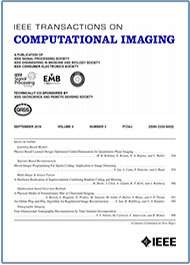- Our Story
- Publications & Resources
- Publications & Resources
- Publications
- IEEE Signal Processing Magazine
- IEEE Journal of Selected Topics in Signal Processing
- IEEE Signal Processing Letters
- IEEE Transactions on Computational Imaging
- IEEE Transactions on Image Processing
- IEEE Transactions on Information Forensics and Security
- IEEE Transactions on Multimedia
- IEEE Transactions on Signal and Information Processing over Networks
- IEEE Transactions on Signal Processing
- IEEE TCI
- IEEE TSIPN
- Data & Challenges
- Submit Manuscript
- Guidelines
- Information for Authors
- Special Issue Deadlines
- Overview Articles
- Top Accessed Articles
- SPS Newsletter
- SigPort
- SPS Resource Center
- Publications FAQ
- Blog
- News
- Dataset Papers
- Conferences & Events
- Community & Involvement
- Professional Development
- For Volunteers
- Information for Authors-OJSP
-
Home
Conferences Events IEEE Signal Processing Magazine IEEE SPL Article IEEE TIFS Article IEEE TMM Article IEEE TSP Article Jobs in Signal Processing Lectures Machine Learning Seasonal Schools Signal Processing News SPM Article SPS Distinguished Lectures SPS Newsletter Article SPS Webinar SPS Webinars SPS Webinar Series Webinar webinars
-
Our Story
What is Signal Processing?

The technology we use, and even rely on, in our everyday lives –computers, radios, video, cell phones – is enabled by signal processing. Learn More » -
Publications & Resources
-
SPS Resources
- Signal Processing Magazine The premier publication of the society.
- SPS Newsletter Monthly updates in Signal Processing
- SPS Resource Center Online library of tutorials, lectures, and presentations.
- SigPort Online repository for reports, papers, and more.
- SPS Feed The latest news, events, and more from the world of Signal Processing.
-
SPS Resources
-
Conferences & Events
-
Community & Involvement
-
Membership
- Join SPS The IEEE Signal Processing Magazine, Conference, Discounts, Awards, Collaborations, and more!
- Chapter Locator Find your local chapter and connect with fellow industry professionals, academics and students
- Women in Signal Processing Networking and engagement opportunities for women across signal processing disciplines
- Students Scholarships, conference discounts, travel grants, SP Cup, VIP Cup, 5-MICC
- Young Professionals Career development opportunities, networking
- Get Involved
-
Technical Committees
- Applied Signal Processing Systems
- Audio and Acoustic Signal Processing
- Bio Imaging and Signal Processing
- Computational Imaging
- Image Video and Multidimensional Signal Processing
- Information Forensics and Security
- Machine Learning for Signal Processing
- Multimedia Signal Processing
- Sensor Array and Multichannel
- Signal Processing for Communication and Networking
- Signal Processing Theory and Methods
- Speech and Language Processing
- Technical Working Groups
- More TC Resources
-
Membership
-
Professional Development
-
Professional Development
- Signal Processing Mentorship Academy (SigMA) Program
- Micro Mentoring Experience Program (MiME)
- Distinguished Lecturer Program
- Distinguished Lecturers
- Distinguished Lecturer Nominations
- Past Lecturers
- Distinguished Industry Speaker Program
- Distinguished Industry Speakers
- Distinguished Industry Speaker Nominations
- Industry Resources
- IEEE Training Materials
- Jobs in Signal Processing: IEEE Job Site
-
Career Resources
- SPS Education Program Educational content in signal processing and related fields.
- Distinguished Lecturer Program Chapters have access to educators and authors in the fields of Signal Processing
- Job Opportunities Signal Processing and Technical Committee specific job opportunities
- Job Submission Form Employers may submit opportunities in the area of Signal Processing.
-
Professional Development
-
For Volunteers
-
For Board & Committee Members
- Board Agenda/Minutes* Agendas, minutes and supporting documentation for Board and Committee Members
- SPS Directory* Directory of volunteers, society and division directory for Board and Committee Members.
- Membership Development Reports* Insight into the Society’s month-over-month and year-over-year growths and declines for Board and Committee Members
-
For Board & Committee Members
Popular Pages
Today's:
- Information for Authors
- (IVMSP 2026) IEEE 15th Image, Video, and Multidimensional Signal Processing Workshop
- Submit a Manuscript
- IEEE Transactions on Signal Processing
- Call for Proposals: (SLT 2026) 2026 IEEE Workshop on Spoken Language Technology
- Conferences & Events
- Signal Processing Cup
- IEEE Transactions on Information Forensics and Security
- (ICASSP 2026) 2026 IEEE International Conference on Acoustics, Speech, and Signal Processing
- (ICME 2026) 2026 IEEE International Conference on Multimedia and Expo
- SPCOM TC Home
- Signal Processing 101
- IEEE Transactions on Multimedia
- Distinguished Lecturers
- Conference Call for Papers
All time:
- Information for Authors
- Submit a Manuscript
- IEEE Transactions on Image Processing
- IEEE Transactions on Information Forensics and Security
- IEEE Transactions on Multimedia
- IEEE Transactions on Audio, Speech and Language Processing
- IEEE Signal Processing Letters
- IEEE Transactions on Signal Processing
- Conferences & Events
- IEEE Journal of Selected Topics in Signal Processing
- Information for Authors-SPL
- Conference Call for Papers
- Signal Processing 101
- IEEE Signal Processing Magazine
- Guidelines
Last viewed:
- (ICASSP 2026) 2026 IEEE International Conference on Acoustics, Speech, and Signal Processing
- SPS Scholarship Program
- Signal Processing 101
- Submit a Manuscript
- SPS Webinar: An Anomaly Detection Framework with Compressed Transformer Architecture for Tiny ML
- Information for Authors
- Call for Proposals: (SLT 2026) 2026 IEEE Workshop on Spoken Language Technology
- Video & Image Processing Cup
- First self-driving cars, now Google AI is helping Rolls-Royce with autonomous ships
- IEEE Journal of Selected Topics in Signal Processing
- IEEE Transactions on Information Forensics and Security
- The Long Journey of a GPS Signal
- (ICIP 2025) 2025 IEEE International Conference on Image Processing
- Members
- SA-TWG Webinar: Channel Estimation for Beyond Diagonal RIS via Tensor Decomposition
Panoramic Robust PCA for Foreground–Background Separation on Noisy, Free-Motion Camera Video
You are here
Publications & Resources
Transactions on Computational Imaging
For Authors
Top Reasons to Join SPS Today!
1. IEEE Signal Processing Magazine
2. Signal Processing Digital Library*
3. Inside Signal Processing Newsletter
4. SPS Resource Center
5. Career advancement & recognition
6. Discounts on conferences and publications
7. Professional networking
8. Communities for students, young professionals, and women
9. Volunteer opportunities
10. Coming soon! PDH/CEU credits
Click here to learn more.
Panoramic Robust PCA for Foreground–Background Separation on Noisy, Free-Motion Camera Video
This paper presents a new robust PCA method for foreground-background separation on freely moving camera video with possible dense and sparse corruptions. Our proposed method registers the frames of the corrupted video and then encodes the varying perspective arising from camera motion as missing data in a global model. This formulation allows our algorithm to produce a panoramic background component that automatically stitches together corrupted data from partially overlapping frames to reconstruct the full field of view. We model the registered video as the sum of a low-rank component that captures the background, a smooth component that captures the dynamic foreground of the scene, and a sparse component that isolates possible outliers and other sparse corruptions in the video. The low-rank portion of our model is based on a recent low-rank matrix estimator (OptShrink) that has been shown to yield superior low-rank subspace estimates in practice. To estimate the smooth foreground component of our model, we use a weighted total variation framework that enables our method to reliably decouple the true foreground of the video from sparse corruptions. We perform extensive numerical experiments on both static and moving camera video subject to a variety of dense and sparse corruptions. Our experiments demonstrate the state-of-the-art performance of our proposed method compared to existing methods both in terms of foreground and background estimation accuracy.
SPS Social Media
- IEEE SPS Facebook Page https://www.facebook.com/ieeeSPS
- IEEE SPS X Page https://x.com/IEEEsps
- IEEE SPS Instagram Page https://www.instagram.com/ieeesps/?hl=en
- IEEE SPS LinkedIn Page https://www.linkedin.com/company/ieeesps/
- IEEE SPS YouTube Channel https://www.youtube.com/ieeeSPS
Home | Sitemap | Contact | Accessibility | Nondiscrimination Policy | IEEE Ethics Reporting | IEEE Privacy Policy | Terms | Feedback
© Copyright 2025 IEEE - All rights reserved. Use of this website signifies your agreement to the IEEE Terms and Conditions.
A public charity, IEEE is the world's largest technical professional organization dedicated to advancing technology for the benefit of humanity.











